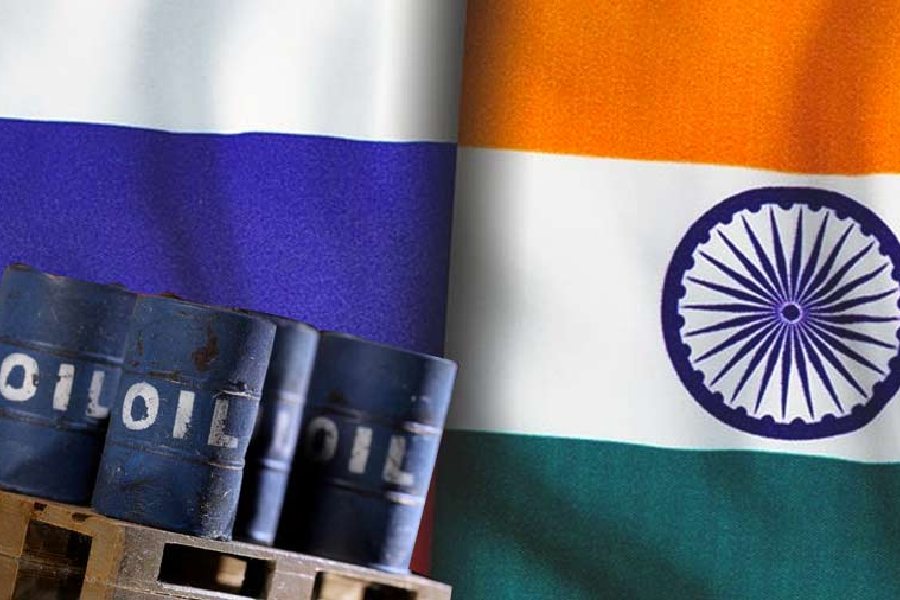India is in under fire from the EU for buying Russian crude oil and selling the refined products like diesel it makes from it to European buyers.
The European Union (EU) is looking at ways to stop Indian companies from selling such refined fuels to European customers. Equally importantly, the EU aims to stop its own members from buying these refined products.
The EU’s foreign minister, Josep Borrell, told the Financial Times: “If diesel or gasoline is entering Europe . . . coming from India and being produced with Russian oil, that is certainly a circumvention of sanctions and member states have to take measures.” Borrell is the EU’s High Representative for foreign policy, the equivalent of the grouping’s foreign minister.
Borrell’s objections to India buying Russian oil came hours before he was slated to meet External Affairs Minister S. Jaishankar who delivered a strong riposte to the EU official’s comments.
At a press conference after meeting Borrell, Jaishankar argued that under the EU’s own regulations, “Russian crude, if substantially transformed in a third country, is not treated as Russian anymore.” In other words, the crude oil once treated in an Indian refinery becomes an Indian product.
Borrell appeared to take a slightly softer line on India buying Russian oil but took a stern view on it being re-exported as refined fuels to EU members.
“That India buys Russian oil, it’s normal. And if, thanks to our limitations on the price of oil, India can buy this oil much cheaper, well the less money Russia gets, the better,” Borrell said.
“But if they use that in order to be a centre where Russian oil is being refined and by-products are being sold to us . . . we have to act,” he added.
No sanctions on refines products
If Borrell’s threats are put into action, it would mark a significant tightening of the sanctions regime against Russia. So far, under the sanctions rules, buyers from India and other countries cannot pay more than $60 per barrel of crude oil at the point of loading. There are no sanctions rules on refined products.
Borrell did not indicate how the EU might act against India for selling refined products to Europe. He only pointed out that each of its member governments would have to crack down on the trade.
Indian companies bought about 2 million barrels per day (bpd) of Russian crude oil in April, making it the world’s second-biggest buyer after China. India’s oil giants have been selling refined products like diesel and VGO, which is used in the production of automotive fuels, both to the US and the EU countries. The EU and the US have closed their eyes to this trade because it helps to keep down global oil prices.
How much have we bought?
In January Reliance bought about 600,000 bpd of crude from Russia. That’s about half its total refinery capacity. Nayara Energy, which is 49 per cent owned by Russian oil giant Rosneft, got almost all its crude oil in January from Russia. In that month, the US bought about 200,000 bpd of finished products, mainly VGO from Reliance.
Despite Borrell’s threat, however, identifying whether Russian crude has been used to make a certain refined product would be extremely hard to prove. India and other countries sell refined products to buyers in Dubai, Saudi Arabia and Singapore, where large-scale oil trading also takes place. From there, the refined products move on to other locations.
Also, the key fact is that if Russian oil went off the market totally, oil prices would be certain to climb steeply. Russia is the world’s second biggest oil producer. Also, till recently, the US had sanctions in place against Venezuela and Iran. Sanctions against Venezuela were lifted in January but the oil production facilities in that country have been so badly degraded that it will take considerable time to bring larger quantities of oil back on the international market.
India has traditionally bought most of its crude oil from producers like Iraq, Saudi Arabia and Kuwait. Before the Russia-Ukraine war erupted, India bought only 1 per cent of its crude oil from Russia but that shot up last month to about 45 per cent. Indian buyers get a roughly $10-dollar discount on Russian crude.










